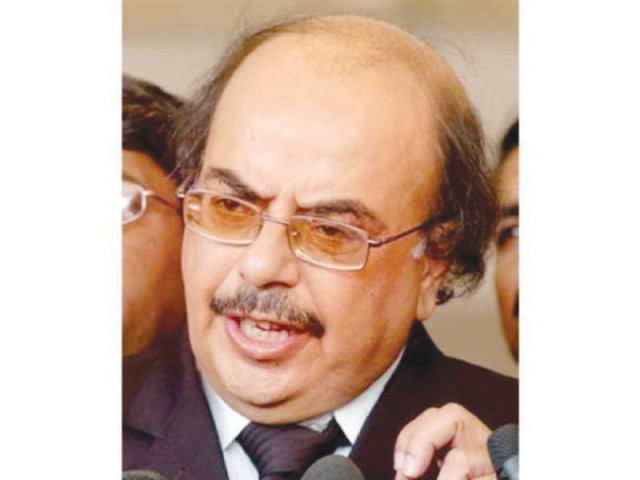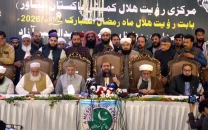Missing persons’ case: Police can take action against servicemen, says AG
Malik says no provision bars police from initiating inquiry against men in uniform.

Muneer A Malik. PHOTO: FILE
Attorney General of Pakistan Muneer A Malik on Friday informed the Supreme Court’s two-judge bench that in criminal cases law enforcers could proceed against serving military officers in accordance with the law as the police was entitled to take action against accused army personnel.
The federation’s chief law officer categorically said Pakistan Army Act, Criminal Procedure Code and Pakistan Penal Code did not have any provision that barred the police from registering criminal cases and initiating proceedings against serving army officers.
Clarifying his point of view before the bench hearing the case of enforced disappearances, Malik said he was assisting the court in his personal capacity and it should not be considered the stance of the federal government.

However, Additional Attorney General Tariq Ahmed Khokhar, who officially represented the federation in the missing persons’ cases, sought time to get instructions from the federal government.
Addressing the bench headed by Justice Jawwad S Khawaja, the principal law officer argued that even a high court could order the appearance of a person such unlawfully detained by military authorities and law enforcers could proceed against those involved in unlawful action.
Earlier the Supreme Court asked for the legal assistance of the attorney general, when advocate Ibrahim Satti representing the Military Intelligence director general requested to constitute a larger bench to decide whether an FIR could be lodged against in-service army personnel.
In his application, Satti had raised the question of a constitutional bar, arguing that civilian law enforcers could neither register criminal cases nor arrest serving military personnel, if they indulge in any activity in line of duty.
“Since the matter involves the question of fundamental rights and we cannot close our eyes, the court will decide the case in either way in accordance with the constitution and law,” observed Justice Khawaja.
Earlier, the MI lawyer argued that the court had to determine its jurisdiction in this case as the police wanted to arrest a serving army major.
The bench was hearing an application filed by Abida Malik seeking recovery of her husband Rasif Ali alias Danish. She had alleged that her husband was picked up by Major Haider of Military Intelligence two years ago.
In response, the MI had submitted that Abida earlier approached the Lahore High Court Rawalpindi bench for recovery of her husband but the high court returned her petition saying the court could not hear a case against army personnel.
Separately the bench expressed its displeasure over the police’s failure to question a United Nations (UN) official for giving a lead about the presence of a missing person in a detention centre.
Superintendent Police Lahore Shahzad Waseem Bukhari had informed the bench that he approached the office of the UN resident coordinator in Islamabad to get information about the missing Mudassir Iqbal but no cooperation was extended to him as he waited for three hours.
A UN Working Group on Enforced Disappearances on September 8, 2012 referred a matter to the Commission of Inquiry on Enforced Disappearance, headed by Justice (retd) Javed Iqbal through a letter suggesting that Mudassir Iqbal had been seen in a secret detention centre by several people and the family of the victim had been informed about the fact through other people who earlier had been illegally detained. The letter however did not mention which area or place the secret detention centre was.
On February 16, 2011, Mudassir Iqbal, a shopkeeper by profession at Shadbagh Chowk Lahore had gone to buy groceries but never returned home. Justice Jawwad S Khawaja directed the additional attorney general to take up the matter with Secretary Foreign Affairs and other relevant ministries.
The AAG informed that there was no immunity to the UN official, Zaman, who had not cooperated with the SP during his first visit to UN office.
He said that UN officials were required to cooperate with the police officer and not to violate Pakistani law. “Even if there is immunity to the UN foreign staff, it is waived in the interest of justice according to UN Convention,” he told the court.
Published in The Express Tribune, July 13th, 2013.



















COMMENTS
Comments are moderated and generally will be posted if they are on-topic and not abusive.
For more information, please see our Comments FAQ